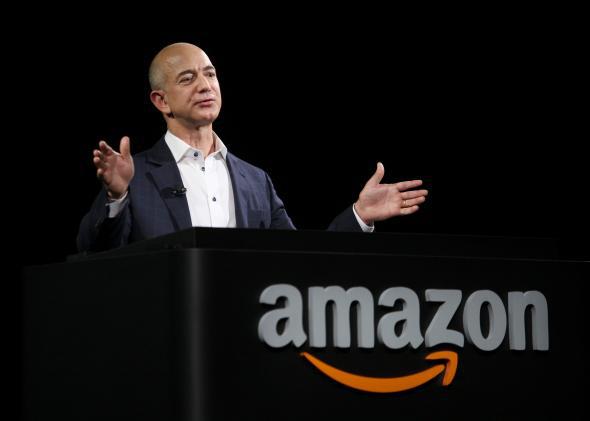Amazon has a new tactic in its months-long standoff with Hachette: Make the publisher look like the bad guy. In a letter sent to Hachette on Tuesday and to a few authors before that, Amazon offers to give Hachette authors 100 percent of the sales price of the e-books it sells until the dispute ends. The e-commerce platform says it would also restore its print inventory of Hachette titles to normal levels and reinstate pre-orders for upcoming books, starting in as little as 72 hours. “What do you think?” Amazon concludes. “Would this be helpful, especially for midlist and debut authors?”
The question is almost absurdly rhetorical, or so Amazon seems to think. Would it help mediocre and breakout authors to get a full cut of their book sales—$9.99 in most cases instead of a tiny fraction of that—while two giants of publishing in print and online duke it out? Of course. Amazon also emphasizes in the note that Hachette has been the one causing negotiations to drag on:
We reached out to Hachette for the first time to discuss terms at the beginning of January for our contract which terminated in March. We heard nothing from them for three full months. We extended the contract into April under existing terms. Still nothing. In fact we got no conversation at all from Hachette until we started reducing our on-hand print inventory and reducing the discounts we offer customers off their list prices.
And in the following paragraph:
We agree that authors are caught in the middle while these negotiations drag on, and we’re particularly sensitive to the effect on debut and midlist authors. But Hachette’s unresponsiveness and unwillingness to talk until we took action put us in this position, and unless Hachette dramatically changes their negotiating tempo, this is going to take a really long time.
The famously taciturn Amazon has been notably more forthcoming throughout the Hachette dispute in providing statements—if not many details—that explain its thinking in the negotiations. Even so, the letter is a brash step, especially since it was almost certainly designed to leak before Hachette got ahold of it. “We haven’t sent this offer to Hachette yet,” Amazon notes toward the end. “We’re sending this to a few authors and agents to get feedback first.”
Hachette sent a brief response to Amazon’s letter: “We invite Amazon to withdraw the sanctions they have unilaterally imposed, and we will continue to negotiate in good faith and with the hope of a swift conclusion,” the publisher wrote. “We believe that the best outcome for the writers we publish is a contract with Amazon that brings genuine marketing benefits and whose terms allow Hachette to continue to invest in writers, marketing, and innovation.” A spokeswoman for Hachette told the Wall Street Journal that the publisher had made Amazon its largest-ever offers to a retailer in April and May, both of which were rejected.
So far authors don’t appear convinced of Amazon’s tactics. “This seems like a short-term solution that encourages authors to take sides against their publishers. It doesn’t get authors out of the middle of this—we’re still in the middle,” Roxana Robinson, president of the Authors Guild, told the New York Times. “What writers want is a long-term healthy publishing ecosystem, not a temporary windfall,” she added. Douglas Preston, a best-selling Hachette author, told the Journal that Amazon’s proposal would be “devastating” to Hachette while “barely hurting Amazon at all.”
Hachette rejects the idea of cutting out the publisher from “its own revenue from e-books sold by Amazon, which would be a suicidal action,” as Hachette put it. “We call baloney,” Amazon retorted. “Hachette is part of a $10 billion global conglomerate. It wouldn’t be ‘suicide.’ They can afford it.”
Throughout the continued mudslinging, Amazon has come off worse in the press, and Amazon’s latest statements are almost certainly an attempt to change that. If Amazon is going to be depicted as a big, bad beast of a corporation, it wants everyone to think that Hachette is all of those things, too.
